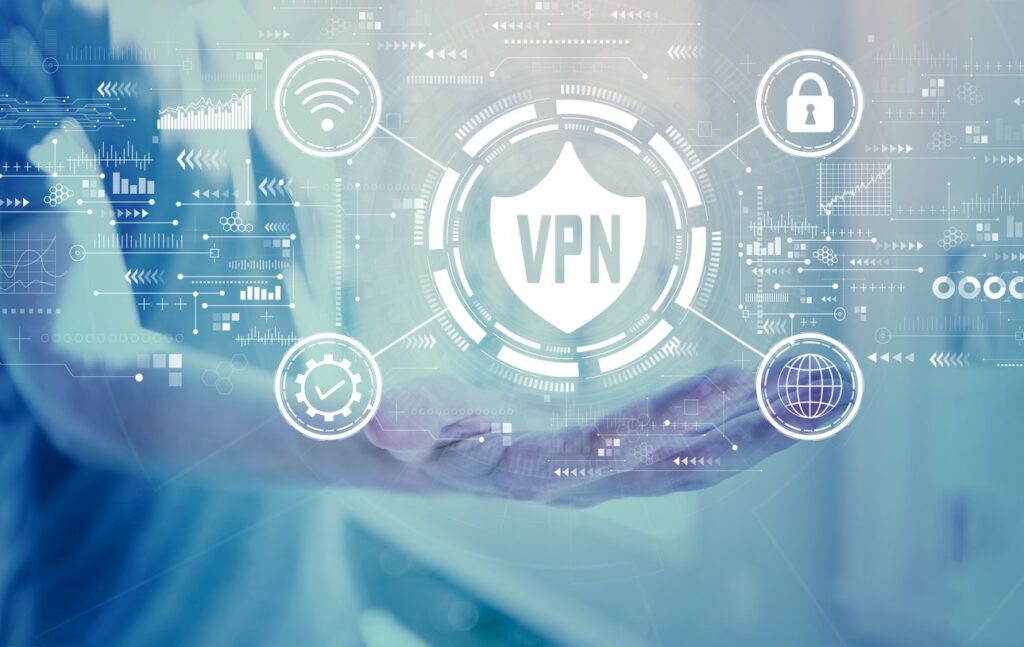Virtual private networks, or VPNs, facilitate secure connections between devices and networks over the Internet. These networks encrypt data transmission to ensure the privacy of sensitive information. Using this network, users can secure their data and conduct work remotely without worrying about unauthorized people listening in.
A VPN mainly serves the purpose of hiding your online activities. The most common use of VPN software for mac is to protect yourself from intruders and sniffers on public networks, but they’re also handy for hiding your IP address, browsing activity, and other personal information on any Wi-Fi network even at home.
Why do I need a VPN?
Your VPN requirements depend on what you want and need. It is probably not a necessity for many people to protect their private networks from cybercriminals, but VPNs have many other benefits. A VPN can provide protection against your ISP and third parties watching your online activity, or you can access streaming content from anywhere in the world if you use public Wi-Fi often. However, if slower browsing speeds are a concern for you, this might not be the right tool for you
VPN Unlimited offers you a selection of servers in 80+ locations and can ensure you don’t have to compromise between security and speed. Your online habits and preferences determine how important a VPN is. It can make a significant difference to your online safety and security to invest in a VPN.
Don’t assume that no one wants your data. Account information, passwords, and other identifying information is what hackers make money off of. Dedicated hackers may even attempt to gain access to your client’s network if you have an important client or customer.
How does a VPN benefit you?
-
Watch Your Shows With You Wherever You Go
Depending on where you live, your favorite streaming service might not have the same content. Because of this, if you find yourself in another country, your favorite series might no longer be available on Netflix, while something else has replaced it, such as Star Trek Discovery. Or, money heist might not be available.
By using a VPN, you can connect to a US-based server (or a server in the country where you wish to watch), allowing your streaming service to believe you are there and allow you to watch your favorite shows online.
-
Boost your online banking security
As you take precautions to protect the information in your bank account, do you also ensure your internet connection is secure? Online banking is convenient, but it will feel troublesome if your identity gets stolen. Although banks have strong internal security measures, there are always threats out there.
By adding VPN unlimited to your online banking, you add an extra layer of encryption so no one else can break into your account – not your ISP, not your bank, and especially not hackers, as well as ensure your data remains safe and secure from the most common online threats.
VPN Services: Things To Consider
You can secure your online privacy with a VPN. This allows you to tunnel your internet connection. The only person who can see your activity when VPN is on is your VPN provider. Your VPN provider has access to all of your browsing data, which makes them a key player in your online security. Selecting a VPN service is not an easy task. It is rare for VPN providers to verify their claims that they do not collect any logs of their users’ activity. Instead, you must take them at their word.
With so many options on the market, how will you determine which VPN you can trust?
When choosing a VPN service, here are 6 things to keep in mind.
-
A free VPN is not free at all
Although a free VPN might sound appealing, the truth is that every company needs to earn money to stay afloat. Free VPNs may do that through ads, but others may do so through selling their users’ data. Or in some other cases, a free VPN may offer lesser features and a slower connection speed.
-
Risk management expertise of the vendor
There are many new vendors entering the VPN market, which is growing rapidly. Many of them are unknown to the public, and very little is known about their products. If you’re looking for a VPN provider, be sure to request transparency and a solid cyber security background.
-
Not all reviews are independent
It is likely that you search the web for information on VPNs when looking for one. There are a variety of VPN reviews and comparisons on the web. A few are paid, but many are not. The chances of them being non-biased are not always obvious, so be cautious about which ones you trust.
-
Consider the VPN provider’s home country
VPN companies must abide by the laws of their home countries. This may entail collecting, storing, and providing data to authorities. Your privacy might be violated as a result. It can also be dangerous for users when there are no laws controlling how their data is collected or handled. This is why knowing where your VPN is based is vital.
-
Review your VPN’s policy regarding the privacy
It is a common claim of VPNs that they keep no logs. It isn’t the case. To provide the service, most VPNs must keep some form of log. Yet some data, like your browsing history, may be private to you. You should verify the claims made by your VPN provider and read their privacy policies.
